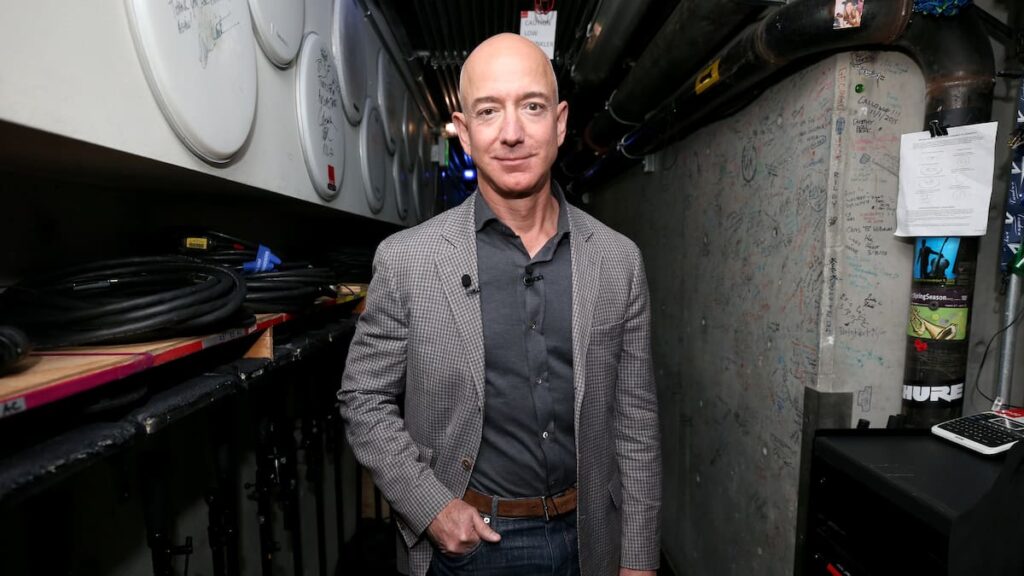Jeff Bezos: The man who shook up global retail. Photo / Getty Images
Of all the big tech companies that dominate stock prices and media headlines, Amazon is the one I have the least connection with. I subscribe to Audible, Amazon's audiobook subscription service, and I regularly buy books from Amazon.
I buy e-books from this site and read them on my old Kindle, and I like both services, but Amazon is not an e-commerce force in New Zealand, where it is in other parts of the world, where it has been around for 30 years.
The online retail giant is not based in Australia and is therefore unable to offer its hugely popular free two-day shipping to Prime members, which has led New Zealanders wary of shopping from Amazon's Australian or US stores due to concerns about shipping costs and long delivery times.
In the US alone, Prime membership, which costs $139 per year, is expected to hit a staggering 180 million members this year, and free shipping is the reason why US Prime members spend an average of $110 a month on Amazon, compared with $38 for non-members.
Because American consumers can buy a bag of coffee and have it delivered to their doorstep the next day at no extra charge, they have become accustomed to having it delivered multiple times each week.
New Zealand retailers fear the day Amazon builds huge distribution warehouses here, like the ones it currently has in Sydney and Melbourne. No other company can match Amazon's purchasing and logistical power. It dwarfs U.S. giants like Walmart and Target in revenue and influence. (Read more about New Zealand booksellers' response here.)

Founder Jeff Bezos started Amazon in his Seattle garage on July 4, 1994, to make it easy to buy books online. This lofty goal morphed into a vision for Amazon to become the world's largest seller of everything.
The company is a true disruptor, driven by Bezos' focus on “adding value” to customers' lives. E-commerce was too complicated, so Amazon pioneered one-click buying. It invented the Kindle to bring books into the digital age, and more than a decade ago introduced the Alexa smart assistant, letting people browse the web and check their calendars just by talking to a small gadget called the Echo. It is one of the world's most valuable companies, and Bezos, who steps down from day-to-day operations in 2021, will be one of the richest people on the planet depending on Amazon's stock price. Amazon employed more than 1.5 million people last year, most of whom worked in its giant distribution centers, many of whom it is trying to replace with robots.
The consumerism that Amazon has encouraged with its free shipping and one-click shopping services has created what critics see as a sustainability nightmare. The business segment with the most growth potential is Amazon Web Services (AWS), which relies on power-hungry data centers around the world to store data and applications. With plans to open a local data center in Auckland, AWS already has a big business in New Zealand, reporting $385 million in revenue in 2023. With artificial intelligence services requiring more computing power, AWS has its work cut out for it as it strives to meet its 2019 climate pledge to “achieve net-zero carbon emissions by 2040.”
Many people hate Amazon for what it represents: encouraging consumption and high-volume commerce at low costs that smaller retailers can't compete with. Amazon's monopoly aspects have given rise to antitrust lawsuits.
But Bezos is now focused on his rocket company, Blue Origin, and we have to take our hats off to him for that. He's built the world's largest e-commerce business and shocked the global retail industry.


